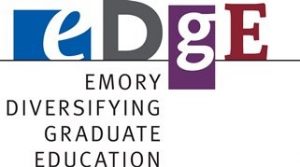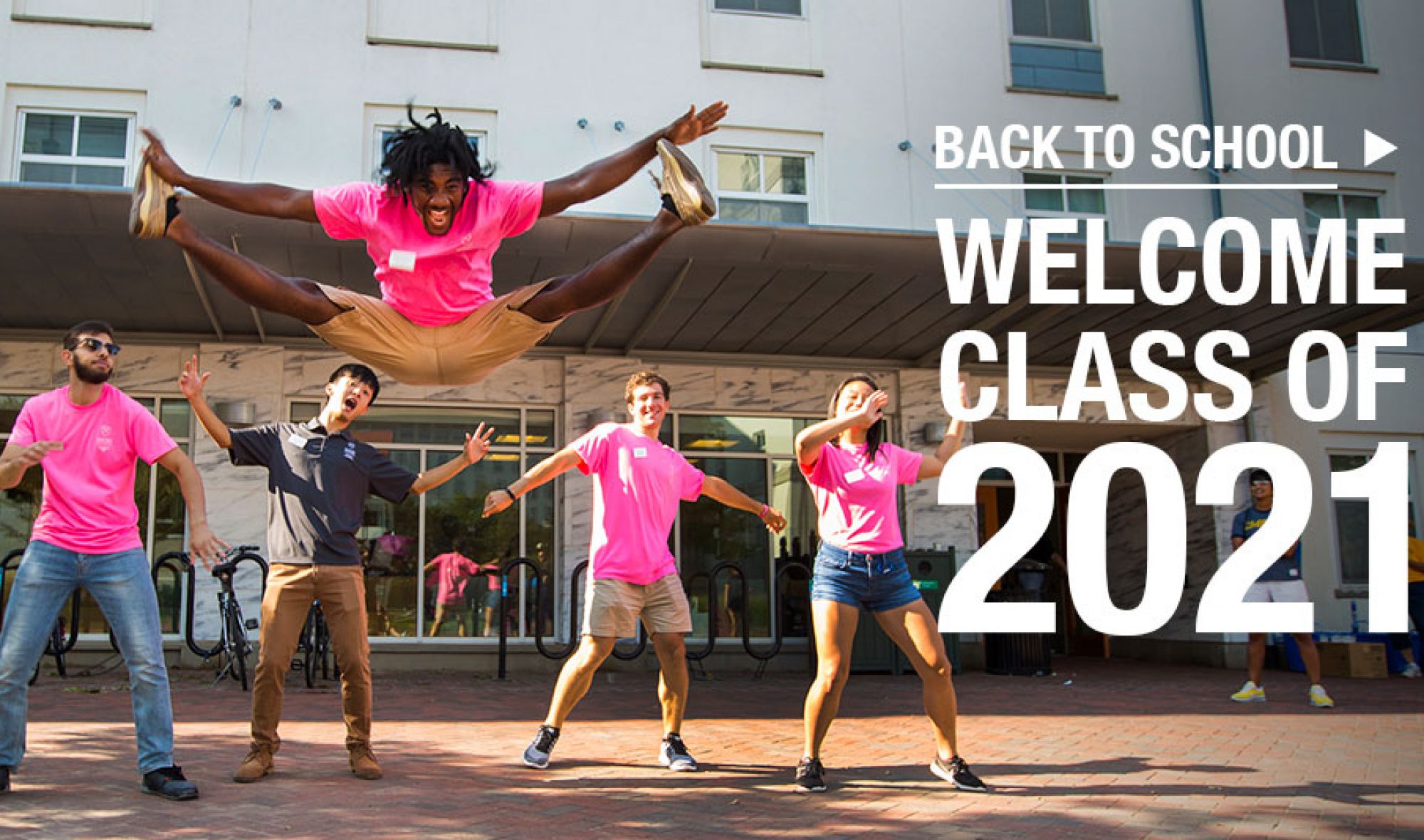Sometimes I think graduate school seems like just another opportunity to accumulate more debt and to lose more sleep, except this time it is more like having a lonely, soul-crushing, full-time job. Although it may not be this intense in actuality, it is a taxing experience that can get lonely at times. Due to this, it is imperative that prospective students find and attend an institution that has an environment they are comfortable in and one where they can find a sense of community. This is especially true for students from underrepresented groups. Attending a school that lacks diversity could make it harder to find a community that underrepresented students can identify with. Fortunately, some graduate schools start initiatives to promote diversity within their programs. Among those schools is Emory University’s Laney Graduate School.

Emory has EDGE, which stands for Emory Diversifying Graduate Education. On their page about diversity, the school claims that “Diversity and community are of highest priority to Emory University and the Laney Graduate School” (Laney Graduate School). How exactly do they do this? According to Emory, there are five ways they try to promote diversity: programming, community, fellowships, outreach and recruitment, and partner organizations.

Some examples of programs they have include the STEM Research and Career Symposium, the IMSD: Initiative to Maximize Student Development, the NIH (National Health Institute) Pathfinder Series, and the ELSP: English Language Support Program. In addition to these programs, they have many different student organizations, campus offices and research opportunities and parties that underrepresented students can get involved with to find a welcoming community they connect with. Students can also be part of the Emory Graduate Diversity Fellowship or the Initiative to Maximize Student Development Fellowships (IMSD) which help cover costs of tuition and stipend and travel expenses respectively. Finally, Laney tries to reach out to possible applicants through different mediums that they know underrepresented groups respond to, including partnering with diversity-oriented organizations to connect with these prospective students.
Although the website explains what they claim to be doing, talking to students who have been directly impacted by these things gives us a better understanding of how effective EDGE actually is. Luckily I got the opportunity to interview an African American Ph.D. candidate in English Literature, Justin Shaw.

Mr. Shaw is an Emory Graduate Diversity Fellow, a Kharen Fulton Graduate Diversity Award Recipient, and a teacher. He also attended Morehouse for his bachelor’s degree and the University of Houston for his masters giving him experience in a variety of social environments that vary in terms of diversity. Our conversation lasted about thirty-six minutes, so below I took a few points he made.
1. What is Emory EDGE and what does it mean to you?
“EDGE is an acronym. It stands for Emory Graduate Diversifying Education. And it started about three years ago. Three or four years ago about, under the leadership of our former director… of recruitment in diversity and community in the Laney graduate school…started by him to Address some of the issues and lack and lacks of diversity and inclusion in graduate school...graduate students tend to already be isolated by research…and then you don’t really have community… [it] has a burden on your work-life balance, time management, and your ability to generate relationships, and even just general friendships and connections with people. And, you know, when you add race and ethnicity on top of that, it adds dimension to it because research suggests that students of color on the undergraduate level already have some things to deal with at a predominately white institution, but on a graduate level its intensified because you often don’t have people working, or who you are working with who look like you. And people working with you and your cohorts are coming from a similar background and understand you and the world in which you came from. The burden for graduate students are at large in terms of acclimating to the atmosphere at graduate school so disproportionately that students of color drop out due to depression, due to feeling emotionally withdrawn from their research and their program. From feeling like they’re not supported in their graduates’ programs because of things not necessarily racism but microaggressions are blatant themes that happen in departments for different reasons.”
2. How effective do you think Emory’s efforts have been in promoting diversity in graduate education? Are they living up to their mission statement?
“I think since the EDGE program was developed like I said four years ago four years ago, it’s definitely been something that the dean all the way down, people have been serious about and engaged with. I think the grad school is intentional about reaching out to graduate students of color to help with recruitment, to help with building community and to help with addressing issues within the community…I can’t speak for the whole university. I don’t know the impact directly that it’s had on the university yet. It’s still a very new program. I mean four years is not a very long time for, to see the effects. I’ve only been here for four years, and this program started when I got here. And I think you have to see a whole cycle of students go through it in order to really start to see the dividends.”
3. You went to the University of Houston to get your master’s degree. How does the environment at UofH compare to Emory’s? How do their efforts to promote diversity compare to Emory’s?
“I’ve seen three different types and I think a program like EDGE works at an institution like Emory and it can work a place like its sister schools… but a place like big public institutions it takes a different model…different kind of institution requires different needs, different students, more students. EDGE is great because Emory’s graduate school is just big enough to do programming that encompasses groups of people, where you can kind of know people face to face. You kind of know who people are. And you can address the need to the student body in a different way, as opposed to the vagueness that could become at UofH.”
4. You are an Emory Diversity Graduate Fellow, and you recently won the Kharen Fulton Diversity Graduate Award. How have these impacted your experience at Emory?
“I think it shows that the school cares and notices…you know one reason why a lot of students drop out of grad school is because they don’t feel supported. They don’t feel like they’ve got community. No one cares. Not even about their research, but about them as a human being. And these things showed me and continue to show me that the graduate school and the university as a whole notices, and they care. And not in a superficial way as the token black kid, but as a person with good ideas, with experience, who can offer something, bring something to the table.”
5. Is there anything that you think Emory could improve in terms of recruiting and retaining a diverse population and promoting diverse environments?
“So one thing I criticize EDGE for, and I don’t blame them, I just criticize it in a positive way, is that is very focused on the STEM disciplines, science, technology, and math. And that’s no fault of their own…the problem in that there’s not a lot of money in that for that as there is in the sciences. There’s not these big grants from the National Science Foundation and institute to health to promote graduate student education in anything else.”
Listen to the whole interview to hear his complete answers and get advice about grad school.
Due to its age, it is unclear to see the long-term effects of EDGE, but presently, I believe that EDGE is doing just fine. So far their efforts to recruit and retain students from underrepresented groups and support them seems to be doing well. While Shaw is not representative of the whole underrepresented student population, this case shows that EDGE is taking strides in the right direction. It is important for graduate schools to adopt the measure so that we can have more people from underrepresented groups with higher degrees. I recently learned that artificial intelligence is now replacing even highly skilled workers (Inglehart and Norris). That means that we need more people to get advanced degrees to keep up with our changing economy. Since, “the white, non-Hispanic proportion of the total population decreased from 73.6% in 1995 to a projected 52.8% in 2050” and they make up the majority of the population of people with postgraduate degrees, there will be a shortage of skilled workers (Bryan). In fact, “by 2028, it is expected that there will be a shortage of 19 million skilled workers to fill jobs in the U.S.” (Bryan). As Shaw stated, if people do not feel supported or a sense of community, they are not likely to finish grad school, so I commend EDGE for doing so. I watched my mother struggle to get her associate’s and bachelor’s degrees during my childhood. I noticed that in her earlier stages of school, she had no community or support, which made school extremely difficult for her. Once she finally found those two things I watched her thrive in school. I can only imagine how much more difficult it will be for her when she goes back to get her master’s without that community going through it with her. EDGE provides this for its students. I think it is safe to say that EDGE is a good fit for Emory… for now.
Bryan, Julia A. “Minority Student Recruitment, Retention and Career Transition Practices: A Review of the Literature”. American Speech-Language-Hearing-Association. N.d., https://www.asha.org/practice/multicultural/recruit/litreview.htm. Accessed 29 Oct. 2017.
[EDGE Logo] [image]. (n.d.). [Photograph]. Retrieved from http://www.graduateschool.emory.edu/diversity/index.html
Inglehart, Ronald, and Pippa Norris. “Trump and the Populist Authoritarian Parties: The Silent Revolution in Reverse.” Perspectives on Politics, vol. 15, no. 2, 2017, pp. 443–454., doi:10.1017/S1537592717000111.
[Justin P. Shaw] [image]. (n.d.). [Photograph]. Retrieved from http://justinpshaw.com/
[Symposium Brochure] [image]. (n.d.). [Photograph]. Retrieved from https://rampages.us/bioadvising/wp-content/uploads/sites/2342/2016/04/2016-STEM-Brochure_Page_1.jpg
